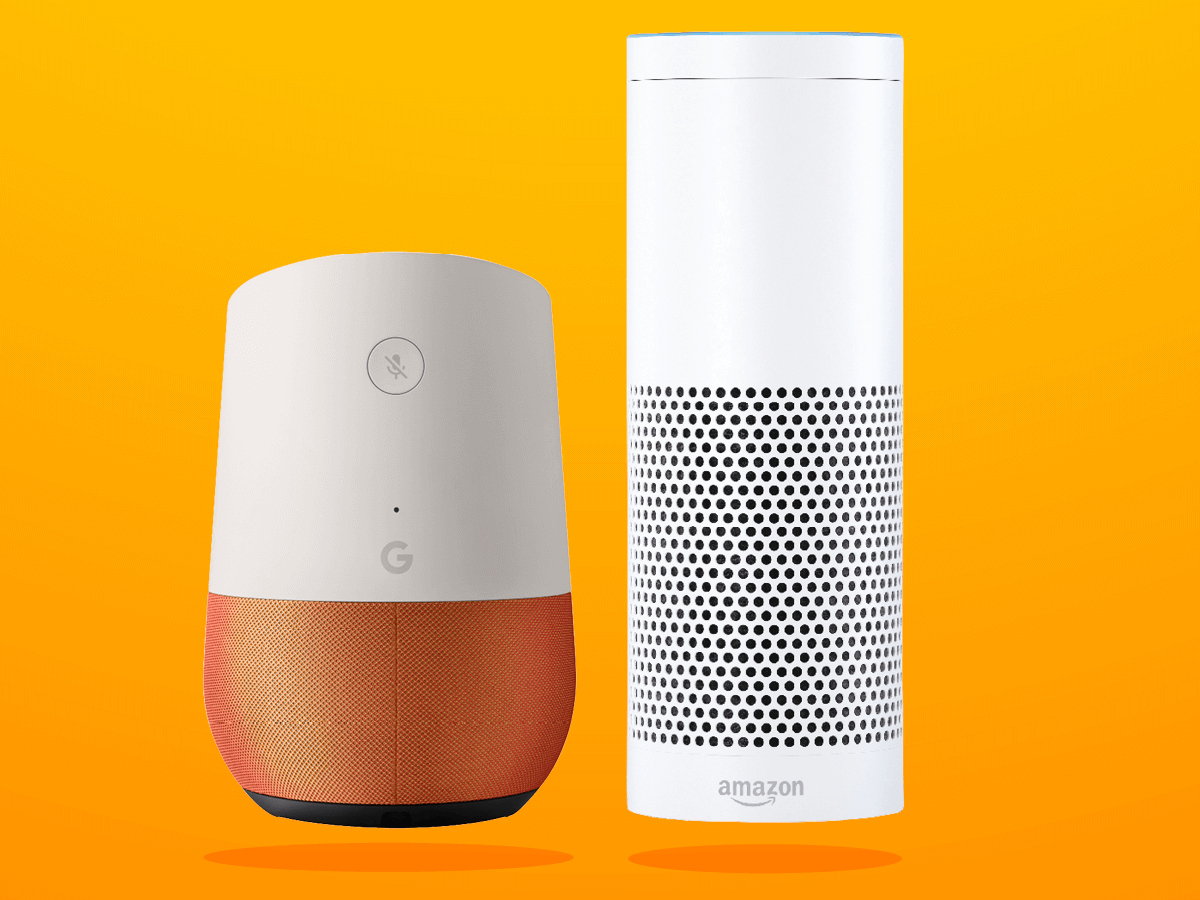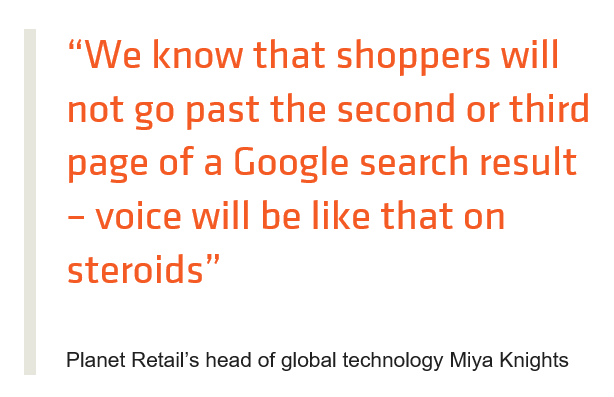Hey Siri, Alexa, Cortana, Google… Voice personal assistants are an accepted, integrated part of digital existence for all smartphone-owners today. Over the last few months, AI and voice technology have gained significant traction in the home through the introduction of smart speakers. Firstly, we had Amazon Echo, and now, Google Home. Google launched its device – with virtual assistant ‘Assist’ – in the UK at the beginning of April, hot on the heels of Amazon’s Echo system.

Google Home vs Amazon Echo
Through voice recognition, these devices are always learning, adapting to your speech patterns, use of vocabulary, and personal preferences. Echo and Home aim to remove your smartphone from the equation, able to play video and audio, control apps, and buy products, just activated by speech.
The question most are asking: can this really work for retail?
The ability to instantly order household basics is the most obvious use for voice-enabled retail. The biggest commonality between Echo and Home as ordering devices is their disruption of the grocery sector, through making and ordering your required shopping list. This is all well and good for the common and mundane, by removing unnecessary friction from this aspect of the customer journey. Ordering groceries is a requirement, viewed by most as a chore. Making this easier has huge appeal.
However, the capacity for voice technology to disrupt other retail sectors might not take the form of automated ordering. In fashion retail for example, where there is enjoyment to be had in browsing and choices to be made, would you really ask Alexa to order you a black dress for an upcoming party in the same way you would a pint of milk? In this way, placing an order over voice technology in retail might become the final method in this customer journey, once prior decisions on brand, style and colour had been made. That’s unless there are significant advancements in AI to tell us what we want, before we know this ourselves.
Voice and Search
Retailers must also be looking to online search capabilities to factor in the search algorithms of virtual assistants such as Amazon’s Alexa and Google Home. As Planet Retail’s Miya Knights commented to Retail Week, optimizing voice searches is critical, as only the very top results will win sales as a result:

Planning for the future
Google reported that 20% of mobile searches by US Android device users were made by voice in 2016. Additionally, Accenture research found that 10% of millenials have already used voice-activated ordering, and 38% of millennials are willing to try it. With this in mind, the influence of voice on shopping habits could just be warming up.
Are bets on for when Apple might release a similar home assistant? Post your comments below.
We think you might like these posts too
© 2025 Retail Assist Limited. The Hub Floor 5A, 40 Friar Lane, Nottingham, NG1 6DQ.
Registered in England. Company number: 03790674
info@retail-assist.com | +44 (0)115 904 2777
Website Designed & Built by we are CODA